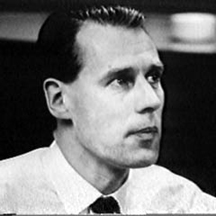George Martin (born 3 January 1926) is an English record producer, arranger, composer, conductor, audio engineer, and musician. He is sometimes referred to as “the Fifth Beatle” in reference to his extensive involvement on each of the Beatles’ original albums. He is considered one of the greatest record producers of all time, with 30 number-one hit singles in the United Kingdom and 23 number-one hits in the United States. In a career of more than six decades, Martin has worked in music, film, television, and live performance. He has also held a number of senior executive roles at media companies and contributes to a wide range of charitable causes, including his work for the Prince’s Trust and the Caribbean island of Montserrat. (More from Wikipedia)
The Beatles are well known for honing their craft in the clubs of Hamburg, Germany in the very early 1960’s, as well as in their hometown of Liverpool. Still, there was some question back then as to whether they could be successful selling records in a non–English-speaking country, so the Fab Four were cajoled by their manager Brian Epstein and their producer George Martin into recording German-language versions of two of their biggest hits, “I Want to Hold Your Hand” and “She Loves You” in January 1964. “Komm, Gib Mir Deine Hand” was later released on the band’s American album, Something New about six months later.
(April 2013)
* * *
Though only one of the big acts came from there, other 1960’s bands were based in Liverpool. Gerry and the Pacemakers is likely the best known; like the Fab Four, this band was managed by Brian Epstein, and their records were produced by George Martin. Their American hits include “Don’t Let the Sun Catch You Crying” and “Ferry Cross the Mersey”, a reference to the Mersey River that runs by the city – in case you are wondering why there has always been so much “Mersey” talk surrounding the Beatles.
(July 2013)
* * *
The Beatles performed a sort of mini-Wall of Sound at the close of their masterful Sgt. Pepper’s Lonely Hearts Club Band album, not long after Phil Spector came along. Following the second symphonic build-up within “A Day in the Life”, the orchestra swelled into a crescendo, and then there was a thunderous piano chord (an E-major chord to be exact). Many people who have been around a piano marvel at how long the instrument can hold a note; and here, the Beatles were dealing that expectation up in spades with a long, slow fade for nearly one full minute before the sound faded into background hiss.
Actually though, it wasn’t just one piano: John Lennon, Paul McCartney, Ringo Starr, and one of the Beatles’ roadies, Mal Evans were manning different pianos; while George Martin was playing the same chord on a harmonium. What’s more, the gain was gradually turned up as the chord faded in order to prolong the effect – at the end (they tell me), it is possible to hear background sounds in the recording studio: rustling papers, a squeaking chair, and the air conditioners.
(October 2013)
* * *
George Harrison had something to say about “Yesterday” as well: “Blimey, he’s always talking about that song. You’d think he was Beethoven or somebody!”. Producer George Martin also talked about the song at a later date: “‘[Yesterday]’ wasn’t really a Beatles record and I discussed this with Brian Epstein: ‘You know this is Paul’s song . . . shall we call it Paul McCartney?’ He said ‘No, whatever we do we are not splitting up the Beatles.’”
(June 2015)
* * *















